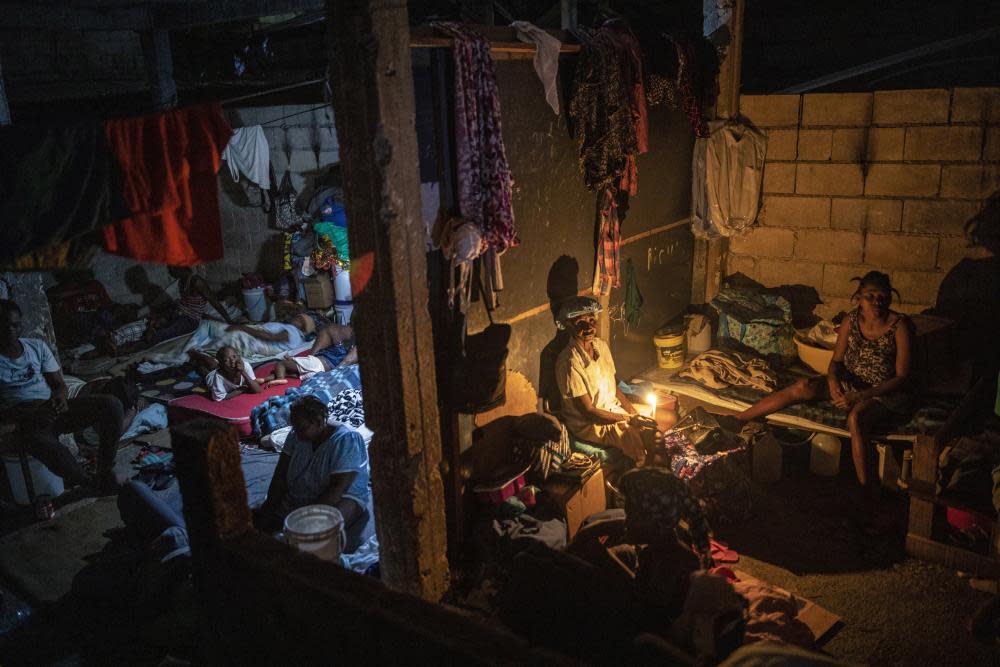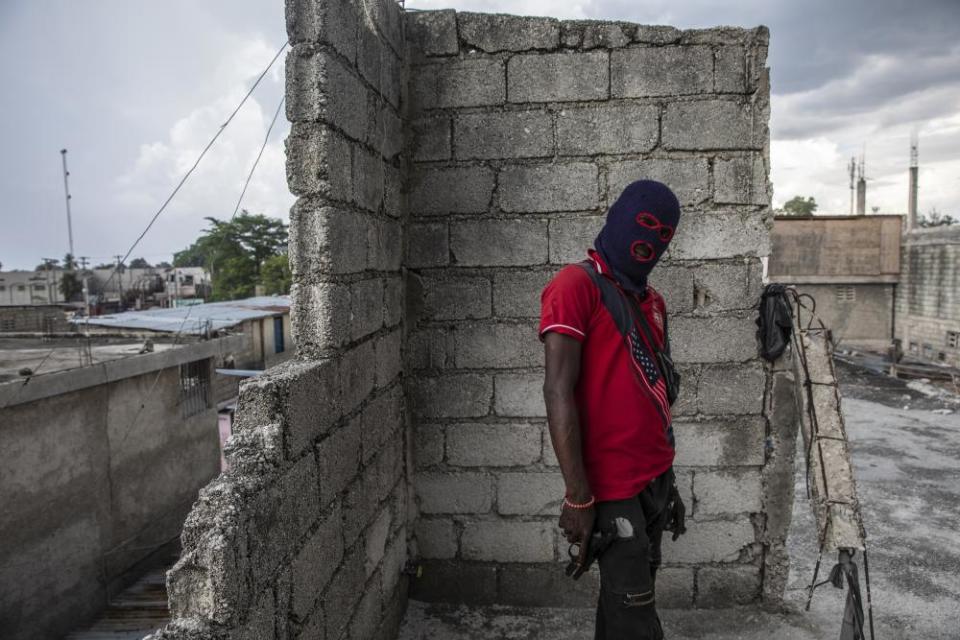‘It could explode at any time’: photographing Haiti’s gang warfare

The two images are as stark as what they represent: the cause and effect of Haiti’s increasing woes. In one, a masked and armed gangster keeps lookout on a Port-au-Prince rooftop, just a few blocks from the presidential palace. In the other, a family recently displaced by gang violence takes shelter in a school that now houses dozens of families, a stone’s throw from their homes.
“Port-au-Prince is almost entirely controlled by gangs, and we wanted to show the efforts of people that are running businesses to survive,” says Rodrigo Abd, 45, an Argentinian staff photographer with the Associated Press who took the images. “But I was also trying to show another side to Haiti, to avoid the stereotypes that we always repeat, to show the violent without the violence, or the poor without the poverty.”
Haiti is beset by overlapping crises. The country’s president, Jovenel Moïse, was assassinated in early July in circumstances that remain mysterious. A 7.2 magnitude earthquake wrecked the country’s rural south in August. In September, thousands of Haitian migrants that had been living across South America were deported from Texas after years away from their homeland.
I was trying to show another side to Haiti, to avoid the stereotypes that we always repeat
Rodrigo Abd
Meanwhile, in the political vacuum, local rights groups estimate that as many as 165 gangs continue to terrorise residents, throwing up roadblocks and kidnapping rich and poor alike for ransom. Aid deliveries to the quake-struck south are often turned back by militiamen, who in October kidnapped a group of 17 US and Canadian missionary workers and their families. Over 600 people have been kidnapped in Haiti this year, over triple last year’s total. Fuel shortages have added to the woes, especially in a country without a reliable electrical grid.
“You can feel an aggressive landscape, that it is a place that could explode very easily and at any time, because the situation is so bad,” says Abd, who has photographed war zones around the world.
Abd has worked several times in Haiti, travelling to the Caribbean country first in 2004, just before the coup that removed then-president Jean-Bertrand Aristide from office in another wave of instability.

Aristide had empowered local gangs to implement his will in the poorer neighbourhoods, and some of the groups operating today trace their roots to his presidency.
“Here, now we are back to what it was in those days, where in some communities, neither the police nor any other type of law enforcement institution can enter, and therefore the population becomes hostages to the armed gangs,” says Fiammetta Cappellini, the Haiti representative for international charity AVSI. “Having no other point of reference, the people develop a sort of cohabitation with the gangs that have become the authority running the neighbourhood.”
Related: ‘A forgotten disaster’: earthquake-hit Haitians left to fend for themselves
Despite the menacing pose of the masked gangster on a rooftop terrace in Abd’s image, the photographer saw a similar desperation to that of the terrorised residents.
“Most of those people that we interviewed said that being in a gang was just a way of survival,” says Abd, adding that he had hoped to photograph gang members without masks, though met steadfast refusal. “It was very difficult to understand the story from outside; we spent three weeks trying to understand, and talking to gang members to understand why they were trying to contest territory and fight the government.”
“My impression was that they are almost normal guys who put on the mask and pick up the gun when they need to defend territory or extort someone, or kidnap someone,” says Abd. “I think that if the situation improves, they may even go back to being normal citizens.
“It’s not only a story that has been going on for the last two or three years, but one that is getting worse now,” he says. “There’s a relationship between the gangs, the city, and the people that are always having to move from one place to another.”
Sign up for a different view with our Global Dispatch newsletter – a roundup of our top stories from around the world, recommended reads, and thoughts from our team on key development and human rights issues, delivered to your inbox every two weeks:

 Yahoo News
Yahoo News 
